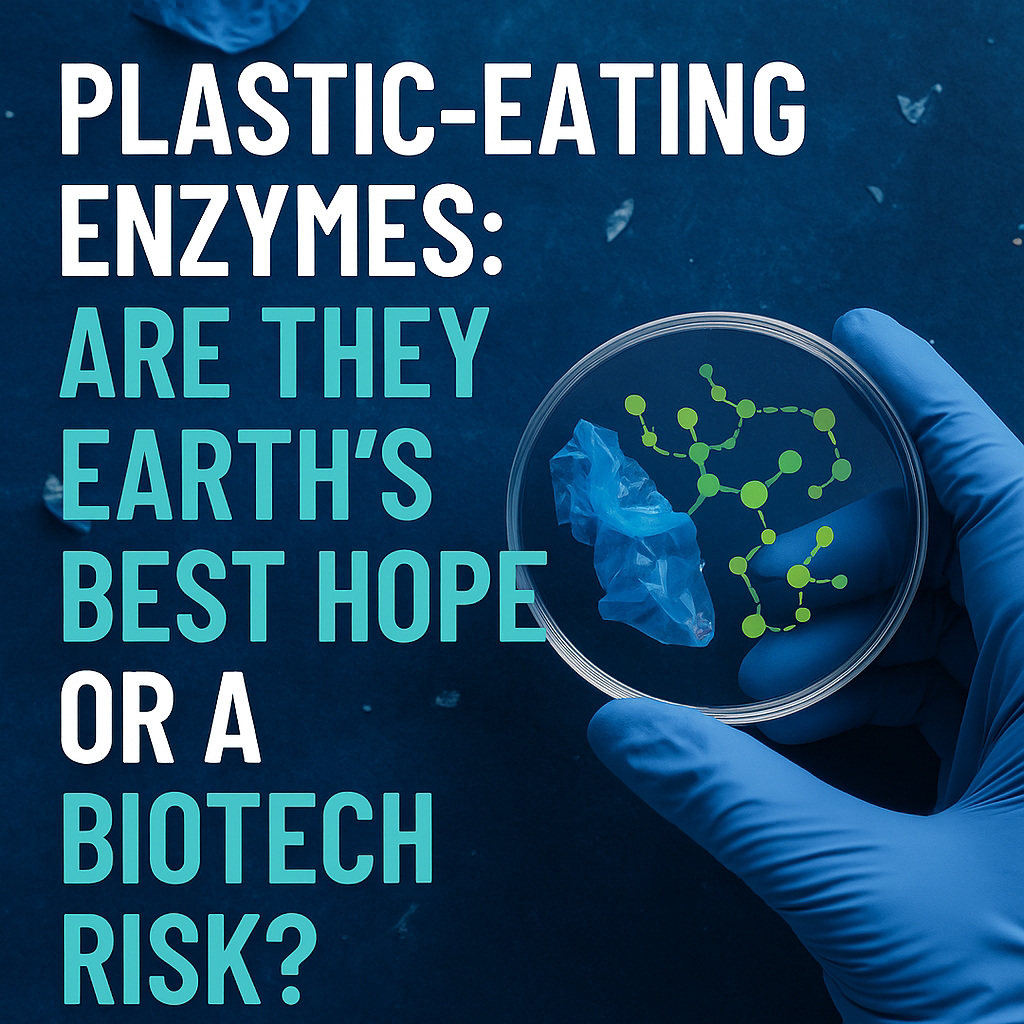🧪 Plastic-Eating Enzymes in 2025: Earth’s Best Hope or a Biotech Risk?
🌍 The Plastic Crisis: A Quick Recap
Globally, over 400 million tons of plastic are produced each year, and only 9% gets recycled. The rest? It chokes landfills, oceans, and even our bloodstreams (via microplastics). Traditional recycling methods are inefficient and energy-intensive.
🧬 The Breakthrough: Enzymes That Devour Plastic
In 2025, researchers from the University of Texas, Japan’s RIKEN Institute, and several biotech startups have developed super enzymes capable of breaking down PET plastics in under 24 hours. PET (polyethylene terephthalate) is found in bottles, food wrappers, and textiles.
Carbios (France): Uses engineered leaf-branch compost enzymes.
Enzymica (US): Targets microplastics using lab-designed bacteria.
IISc Bangalore: Pioneering low-cost enzyme kits for rural plastic waste centers.
These enzymes can break plastic into its original chemical components, making true circular recycling possible.
⚖️ The Promise: Why This Could Save Us
✅ Eco-friendly: No toxic fumes, no energy-guzzling furnaces.
✅ Cost-effective: Enzymatic recycling can reduce costs by 40–60%.
✅ Microplastic Killer: Enzymes can target even microscopic particles.
✅ Scalable: Can be deployed in developing countries using modular bioreactors.
⚠️ The Risks: Playing God with Microbes?
Scientists and ethicists are urging caution. Here’s why:
Mutation Risks: What if the enzymes evolve to attack non-PET plastics—or worse, organic matter?
Unregulated Use: DIY enzyme kits may lead to uncontrolled bio-releases.
Toxic Byproducts: Some broken-down residues may still be environmentally harmful.
Economic Disruption: Threatens current plastic recycling jobs and industries.
🔬 The Science in Simple Terms
These enzymes work like molecular scissors. PET plastic is made of long, tightly bonded polymers. The enzymes latch onto these chains and snip them into monomers, which can be reused to create new plastic—with no loss in quality.
🌱 What This Means for India & the Global South
Countries like India, Indonesia, and Brazil stand to benefit enormously:
Low-cost enzyme labs could clean up rural plastic dumps.
New startups are emerging in Chennai and Hyderabad.
Farmers could process crop-cover plastics locally.
But this also raises a challenge: How do we regulate these new biotechnologies in regions with weak waste laws?
🧩 Final Thought: Hero or Hazard?
Plastic-eating enzymes might be the missing piece in our global sustainability puzzle. But like all powerful tools, their use demands transparency, regulation, and ethical foresight.
Will we handle it right—or unleash a new biological problem in trying to solve an old one?
⚠️ Disclaimer:
This blog is for educational and informational purposes only. Scientific claims are sourced from peer-reviewed journals and research as of June 2025. Please consult updated resources for technical or regulatory guidance.




Comments
Post a Comment